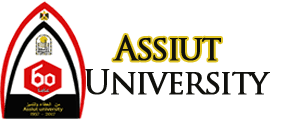IMPACT 1. Identification of socio-economic and cultural barriers (including the food behaviour change) aiming to increase adherence to the Mediterranean diet, through hands-on approaches and experiments. Perceived MD barriers and enablers will be investigated considering the 3 main constructs of the Theory of Planned Behaviour: (1) attitudes (suitability, taste, restrictive, food waste); (2) social norms (food culture) and (3) perceived behavioural control (motivation, affordability, time/effort, food access, knowledge, food outlets, natural conditions, cooking skills). To increase MD adherence, the barriers will be considered in 4 Med areas (reaching at least 1,600 consumers) to adequately adapt 7 educational intervention campaigns (with variability in their local determinants), tackling 2030 United Nations Agenda in SDG4 (QUALITY EDUCATION). Hands-on approaches will be integrated with the co-creationof new healthy MD snacks following a Citizen Science path, and the direct participation of children in the agricultural value chain through visits to farms and agricultural fields. DELICIOUS will collaborate with the platform JPI HDHL, which promotes healthy lifestyles, as well as EUPHA association as the contact with public health policy makers.
IMPACT 2. Identification and comparative analysis of local determinants of food choices (such as education, socio�economic, hedonistic, market dynamics) of different Med populations through harmonised and validated methods. The relevance/weight of food-intrinsic and external, personal and sociocultural factors varies with the country�specific context; therefore, case studies in DELICIOUS will be conducted in Northern (ES, PT, IT), Eastern (LB), and Southern (EG) Med countries to understand the environmental, economic, social and cultural conditions
characteristic of different countries. For comparative purposes, data across countries will be collected and analysed following a harmonised methodology, including consumer perception, nutrition needs and demands, MD adherence and physical activity and health status, on different demographics representations. The results will allow adopting a market-driven approach adapted to each country when developing the food (recipes/ healthy snacks) and educative products (toys, games, books), meeting consumer´s preferences and acceptability.
IMPACT 3. Foster new business models and marketing of new food products and promoting eating habits consistent with the MD, that meet consumers’ preferences and acceptability. Although carbon reduction activities respond to a positive return on investment of 33% in excess of cost of capital (8-12%), and obesity and NCDs actions could reach a global 65% reduction in related healthcare costs (Figure 7), current food business models do not take into account both factors. In DELICIOUS, two MD-based business models will be developed: (1) MD�based weekly menus based on short food supply chains, using locally produced and distributed Med products, with a calculated environmental and social impact (Table 4) while promoting agriculture careers in the youth in a fairer system; and (2) dietary complementation with healthier food products minimizing the use of resources and co-created according to the trends, needs and preferences of the Med youth. The continuous monitoring of the school interventions (Impact 4) enables the optimization of the above business models. Furthermore, the use of sustainable materials in the fabrication of both toys and editorial material (ink based on renewable sources, and certified use PEFC ST 2002-2013 of sustainable forestall resources) will contribute to a lesser C footprint.
IMPACT 4. Assessment, monitoring and reporting of the adherence to the Mediterranean Diet through the development of methodologies that enable the acquisition of data and appropriate indicators. The school intervention actions designed in DELICIOUS involves education in different aspects (see Methodology) and will be adapted to each country-specific context and national policies. Four major steps will be followed: (1) MULTIPARAMETRIC RESEARCH aiming to improve knowledge and scientific evidence of local determinants of food choices and barriers for the MD adherence (see impact 1 & impact 2), (2) IMPLEMENTATION AT LOCAL LEVEL (case studies), aiming to increase MD adherence levels, (3) MONITORING of the case study to evaluate the efficiency of school interventions and (4) SCALING OUT, aiming the implementation of the educational interventions in 5 further countries: Morocco, Greece, France, Turkey and Cyprus by 2030. The goals set according to WHO principles of School policy framework include the following: (1) Increased planet and human health awareness at least 70% in one year of intervention; (2) to create a school net labelled as “nutrition & environment-friendly” to boost the incorporation of further schools to the programme; (3) increase % students that walk or cycle to the school from 5 to 15% in a 2 year range; or, (4) reduction of at least 30-70% C footprint of school meals (depending on the cultural context and food heritage). To ensure correct implementation, at least 200 teachers and education professionals will be trained
in the DELICIOUS framework.
IMPACT 5. A shift towards consumer-driven new product development that corresponds to the appreciations, preferences, (health) needs and affordability means of consumers in the Med countries and tourists as ambassadors of the MD. The current aggressive marketing of ultraprocessed foods containing high sodium and sugar play an important role in the consumer Med behaviour. DELI CIOUS will increase adherence to the MD pattern by allowing children and adolescents be participants of their own nutrition management under a Citizen Science approach. By opening the digital platform to the Public, DELICIOUS plans to reach at least 2,000 citizens during the project implementation and 5,000 citizens by 2030 through replication activities. Furthermore, DELICIOUS’ communication will maximize the impact of the project via social media posts, including collaborations with influencers and MD�expert cooks, which will share new recipes in social networks or national TV, reaching a broader audience, especially young people. Other cutting-edge communication platforms, such as participation in podcasts, will be explored too.The Med region has experienced increasing shares of tourism throughout the years: in 2015 there were more than the double tourism arrivals than in 1995. Tourism has become a cornerstone of Med economies, therefore it is of utmost importance to maintain it and link it to agricultural chains and Mediterranean lifestyle, for incentivising rural development (e.g., through culinary festivals)14
. The Culinary Tourism market, which globally is expected to increase by a 9% CAGR forecasting 2019-2023, expects 35% of that growth to come from Europe. This market opportunity in
the culinary tourism will contribute to increase MD adherence outside the Med region in 30% by 2030. With the support of the primary sector (Henar comunicación agroalimentaria, ) and the direct involvement of rural areas’ schools, DELICIOUS plans to support MD adherence benefits in the rural environment. DELICIOUS will tackle 2030 UN’s Agenda in SDG8 (DECENT WORK AND ECONOMIC GROWTH)
IMPACT 6. Improved nutrition and health thanks to a better diet. MD could reduce 18% overall mortality, along with other plant-based dietary benefits (health & financial) (Figure 7). Financially, prediction models estimate in $8.2B-$31B savings associated to cardiovascular disease prevention in the USA if adherence to MD is 20-80%, respectively15. DELI CIOUS will directly intervene during the project implementation in early stages of Med populations in 5 countries with different nutritional status (Figure 5) and at least in other 5 countries by 2030, thus improving overall health and reducing costs in national healthcare systems by ~30%. Efforts will be given to tackle SDG3 (GOOD HEALTH AND WELL-BEING) & SDG2 (ZERO HUNGER), specially SDG2.2, and to reach over the indicators of prevalence of stuntingand prevalence of malnutrition of the WHO Child Growth Standards for children under 5 yo. Additionally, to contribute to the reduction of overweighted children in Med area due to lack of interest in physical activity or insufficient activity in general, an increasing problem in Med regions in the last decades, DELICIOUS has set extra efforts. Physical activity programs, specifically adapted to age and culture (WP3), will be implemented in schools to effectively stimulate children towards more active lifestyles and aiming to successfully tackle children’s obesity.
IMPACT 7. Consumers’ empowerment (food information /awareness/ behavioural change). Up to 33-72% of environmental footprint reduction could be achieved in Spain if an appropriate MD pattern shift is executed (comparing MD & westernalized diet)16. However, 48% of EU consumers claim a lack of transparency on environmental labels, and only 6% of EU consumers trust the environmental claims of products. By implementing a LCSA methodology in traditional and new Med recipes, its sustainability datawill be available in a trustworthy manner along with nutritional profiles. DELICIOUS will disseminate this information to children, parents and school staff through the digital platforms, accompanying recipes with nutritional information, physical activity suggestions, cooking recommendations and detailed data on sustainability (Figure 12). In a similar way, DELICIOUS will communicate these sustainable findings to the general publics via the project webpage. Altogether, DELICIOUS will contribute on reaching SDG12 (RESPONSIBLE CONSUMPTION AND PRODUCTION) UN’s goal. With a holistic approach and educational methods for children & families, DELICIOUS expects to raise awareness and influence dietary changes (e.g., through online education platform such as Universidad de Padres) and, ultimately, to increase MD adherence in at least 40% of the Med societies by 2030.
IMPACT 8: Promote a healthier and more sustainable lifestyle, incorporating exercise routines for more active lifestyle and boosting healthier & more sustainable food shopping habits. Although a good nutrition is essential for a healthy life, the sustainability of the planet is algo a determinant factor since pollution and environmental damage end up having a very negative impact on human health, particularly for the elderly and the young17. In this regard, DELI CIOUS will collaborate by strengthening relationships between citizens and local producers and markets. Through DELICIOUS App, customers will find advertisement of local food producers, farmers and markets, thus enhancing the “100% local” and “zero kilometres” approach, a more sustainable grocery shopping method. Likewise,
the human body needs a daily physical routine to stay fit, active and maintain better health. Therefore, DELICIOUS will create exercise routines for young population: children & adolescents will get used to physical activity from a very early age and, in the long run, maintain this beneficial habit throughout the years.
IMPACT 9: Reach a wider public to attain to SHD dietary patterns to further promote a change in governance and societal models. Only 5 countries (Germany, Sweden, Qatar, Canada and Brazil) have successfully implemented a national plan with developed dietary guidelines to promote SHDs18. More recently, the Netherlands and UK have been developing programs to attempt this goal. Unfortunately, there are still no clear plans nor attempts in any of the countries included in DELICIOUS (Portugal, Spain, Italy, Lebanon, Egypt), nor is there a plan established at the European level. Therefore, to boost the implementation of SHDs with contribution with national and European policy-makers, DELICIOUS will take advantage of the findings during the project to provide policy recommendations regarding Sustainable and Healthy dietary patterns based on the MD. Contacts with relevant European policy maker (EUPHA ) has already been stablished, and will be further developed as part of task 8.3.
IMPACT 10. Contribution to objectives committed in EU and international policies · Farm to Fork Strategy: DELICIOUS will contribute to the sustainable food production and consumption, promoting
fairer and more sustainable agri-food value chains (minimizing processing and distribution) according to Farm2Fork.· Biodiversity Strategy: By focusing on traditional Med dietary pattern and sustainability of agri-food value chains, local products and varieties (PGI/PDO certificated) will be promoted, thus promoting Med region biodiversity maintenance. Special focus will be given in reducing the use of pesticides, and restoring land via sustainable farming. · Support to European partnerships, helping to avoid the duplication of investments and contribute to reducing the
fragmentation of the research and innovation landscape in the EU. In particular DELICIOUS is linked to: (i) European Partnership accelerating farming systems transition: agroecology living labs and research infrastructures: By directly involving farmers and a real societal approach to farming systems, a better in situ understanding will be achieved. Education about how better and more sustainable agri-food systems can become will boost agriculture careers in the youth; (ii) European Partnership for Safe and Sustainable Food Systems: DELICIOUS approach this partnership by (1) supporting food safety systems, (2) boosting consumer trust in safety, quality and life cycle of products, (3) supporting the shift to MD pattern, (4) revalorizing food products by their integration in novel products, (5)
promoting health benefits in the human body; (iii)European Partnership for rescuing biodiversity to safeguard life on Earth: To maintain the only 16% of the most important habitats in EU that are currently conserved in good levels, and increase that share, DELICIOUS will join efforts in developing sustainable agri-food systems in the Med region.· Lastly, in line with the European Green Deal objectives, research and innovation activities of DELICIOUS comply with the ‘do no significant harm’ (DNSH) principle as none of them affect the six environmental objectives: climate change mitigation, climate change adaptation, sustainable use & protection of water & marine resources, transition to a circular economy, pollution prevention & control, and, protection & restoration of biodiversity & ecosystems.




















